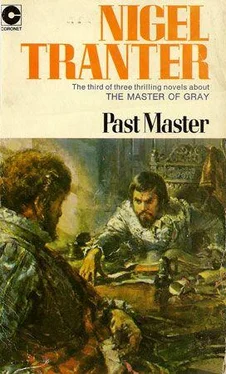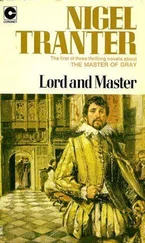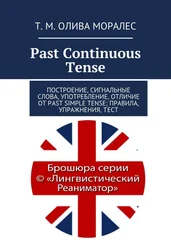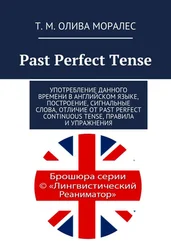Nigel Tranter - Past Master
Здесь есть возможность читать онлайн «Nigel Tranter - Past Master» весь текст электронной книги совершенно бесплатно (целиком полную версию без сокращений). В некоторых случаях можно слушать аудио, скачать через торрент в формате fb2 и присутствует краткое содержание. Жанр: Исторические приключения, на английском языке. Описание произведения, (предисловие) а так же отзывы посетителей доступны на портале библиотеки ЛибКат.
- Название:Past Master
- Автор:
- Жанр:
- Год:неизвестен
- ISBN:нет данных
- Рейтинг книги:5 / 5. Голосов: 1
-
Избранное:Добавить в избранное
- Отзывы:
-
Ваша оценка:
- 100
- 1
- 2
- 3
- 4
- 5
Past Master: краткое содержание, описание и аннотация
Предлагаем к чтению аннотацию, описание, краткое содержание или предисловие (зависит от того, что написал сам автор книги «Past Master»). Если вы не нашли необходимую информацию о книге — напишите в комментариях, мы постараемся отыскать её.
Past Master — читать онлайн бесплатно полную книгу (весь текст) целиком
Ниже представлен текст книги, разбитый по страницам. Система сохранения места последней прочитанной страницы, позволяет с удобством читать онлайн бесплатно книгу «Past Master», без необходимости каждый раз заново искать на чём Вы остановились. Поставьте закладку, и сможете в любой момент перейти на страницу, на которой закончили чтение.
Интервал:
Закладка:
Somehow Ludovick got himself out from under them – and staggering to his feet abruptly found himself in command of the situation. Strachan now had no sword, and on top of him the other man was dazed, moaning. Panting, Lennox tugged out the skewering blade from his shoulders, and so stood, a weapon in each hand.
He stared round at the circle of watching faces. None of the others had drawn sword. No eye met his own. All gazed fascinated at their two colleagues helpless below him.
Ludovick's sigh of relief was lost in his deep breathing. For long moments he stood; there was no hurry now.
Then he sheathed his own sword, making something of a play of it. But as the stocky man was unsteadily rising to his feet, the Duke quite leisurely leant over and brought down the flat of Strachan's weapon on the man's wrist, not hard enough to break the bone but enough to make the unfortunate drop his sabre with a cry of pain. Ludovick kicked the weapon out of the way, and then, stepping forward, slapped the man across the face and pointed peremptorily over towards the horses. He stood blinking for a moment, and then turning, tottered away, mumbling.
A sort of corporate sigh issued from the ranked spectators.
Strachan was now on all fours, looking up at the younger man with fear in his eyes.
'You I should kill,' Ludovick said slowly. 'You are not fit to five. Can you think of any reason why I should spare you?'
The man gulped, but found no words.
'Speak, oaf! Can you, I say?'
'N' no,lord.'
'Nor can I. Save, I suppose, that Christ died for you, as I said! Is that sufficient that I should spare you?'
Hope dawned in Strachan's eyes. He began to gabble. 'Aye, lord. Ha' mercy, lord. Aye – spare me, for sweet Christ's sake! Spare me, my lord Duke!'
'If I do, it is not I who spare you, but Christ's cross. Which you spat upon! Yoo hear? Christ's cross. Remember that, always.' He looked up. 'And you all. Remember it, and take heed.' Then he held out his hand. 'Here is your sword, man.'
The other stared at the sabre proffered him, scarcely comprehending. He did not even put out his hand to take it.
Shrugging, the Duke tossed the weapon to him, and turned on his heel, ignoring him thereafter. 'Leslie,' he called. 'Have all men mounted forthwith. Then up with them to the pass. Do not wait for me. I go speak to Seton.'
There was a general move towards the horses almost before Lennox had finished speaking. The incident was over.
Another house, another godly assault, more faith, fervour and fury. And again Ludovick Stewart groaned in spirit. But this time he had to restrict himself to groaning, and that inwardly. For the assault was by no means confined to unruly men-at-arms; the highest in the land were involved, from the monarch downwards.
It was two days after the affair at Tullos – and no battle had taken place. There had been isolated scuffles between small parties on both sides, but the main forces had not been engaged. It seemed evident now that Huntly dared not attack the King, indeed did not even dare to take vigorous defensive action. For this house which was now being assailed was none other than his own great Castle of Strathbogie, for centuries the headquarters of Gordon power in the North.
At first, on arriving at Strathbogie, there had been a sort of constraint about everyone, despite the sense of jubilation and assurance, ever growing, which these days possessed the King and his army. Strathbogie was so vast a place, so proudly assured itself, as to daunt even the boldest – although Ludovick's advance-party had duly sent back word that it was not in fact even occupied much less being defended, and there was no sign of an enemy force within a dozen miles. It had taken some little time, when the royal force came up, for the sense almost of awe to wear off, in the face of this mighty establishment which spoke so eloquently, however silently, of enormous wealth, entire authority, almost unlimited power, in a way that none of the royal castles and palaces seemed to do. This was no military fortress, towering on top of a frowning rock like Edinburgh or Stirling; it was not even in a notably strong position within the spreading parkland and water-meadows at the junction of Bogie and Deveron – and the very lack of these obvious defensive precautions spoke of the complete confidence of the Gordon chiefs, Cocks o' the North for centuries, that here amongst their Grampian foothills in the centre of a million acres of Gordon-dominated territory, they were entirely, perpetually secure. This Strathbogie was not so much a castle or palace as a city in itself, surrounding and building up to the great central mass of masonry which was the citadel, tall, commanding, serene. That all this should be utterly devoid of life this October day only added to the sensation of eeriness, as of something wholly assured, infallible that but waited to strike.
James himself, these last days, had become a man transformed, as the certainty grew upon him that his coming had changed Huntly from being a rampant and ever-present menace to something like a wary fugitive. Strathbogie abandoned before him had seemed like the crowning of his efforts. Nevertheless, when he had walked through the empty halls and corridors of the Gordon citadel, he had been much affected, doubtful again. Even the riches littered there in such profusion -plenishings and furnishings, tapestries, plate, pictures, gold and silver ware – although they had him licking his lips and ordering all to be packed up and sent to Holyrood, Falkland, Stirling or Linlithgow, nonetheless made him uneasy. That any man could go and leave all this behind him, wealth grievously unsuitable for any subject, somehow oppressed him. It must argue vastly more elsewhere, to be sure.
But now James was confident again, restored in spirit. The first blasts of gunpowder had done that; there was something so positive and vigorous about gunpowder, and the King had developed an extraordinary faith in it. Not that it was proving very effective at Strathbogie as yet. Many of the surrounding buildings were tumbling down nicely – but the main central range was altogether too massively built, with walls ten to twelve feet in thickness, with iron-hard cement; it would require ever greater charges of explosive, ever bigger bangs. But meantime there was ample good work to be done on a different scale, much faithful effort requiring direction.
The Kirk needed no egging on, at all events. Led by Andrew Melville, the covey of ministers who accompanied the army and acted as local recruiting-officers, had all along marched and campaigned like troopers, fighting vehemently where opportunity offered, strong in the Lord's work. Melville had actually borne a pike throughout. Now he was zealously demonstrating to an admiring group how that horror of horrors, the Popish chapel of Strathbogie, could be demolished with greatest effect.
The King was more concerned with the castle itself. As well as cavities to be made in the great walls, for the explosive charges, there were battlements and parapets to be toppled, windows to be torn out, stone carvings to be defaced. He had to keep an eye also on the unending stream of men who emerged from the castle, ant-like, bearing idolatrous images, shrines and pictures, as well as doors, panelling, tables, benches and other non-valuable plenishings, to feed the flames of two huge bonfires which burned in the large main courtyard – for of course it was necessary to ensure that nothing of real worth was destroyed.
Ludovick, already roundly rebuked as faint-heart, backslider and appeaser of evil, who had been pacing restlessly, unhappily, to and fro near the King, turned to go and seek the Master of Gray whom he had noted earlier entering the castle pleasance. He found him, stretched out in a garden-house, making the most of the October sunshine, a picture of relaxation and ease.
Читать дальшеИнтервал:
Закладка:
Похожие книги на «Past Master»
Представляем Вашему вниманию похожие книги на «Past Master» списком для выбора. Мы отобрали схожую по названию и смыслу литературу в надежде предоставить читателям больше вариантов отыскать новые, интересные, ещё непрочитанные произведения.
Обсуждение, отзывы о книге «Past Master» и просто собственные мнения читателей. Оставьте ваши комментарии, напишите, что Вы думаете о произведении, его смысле или главных героях. Укажите что конкретно понравилось, а что нет, и почему Вы так считаете.












